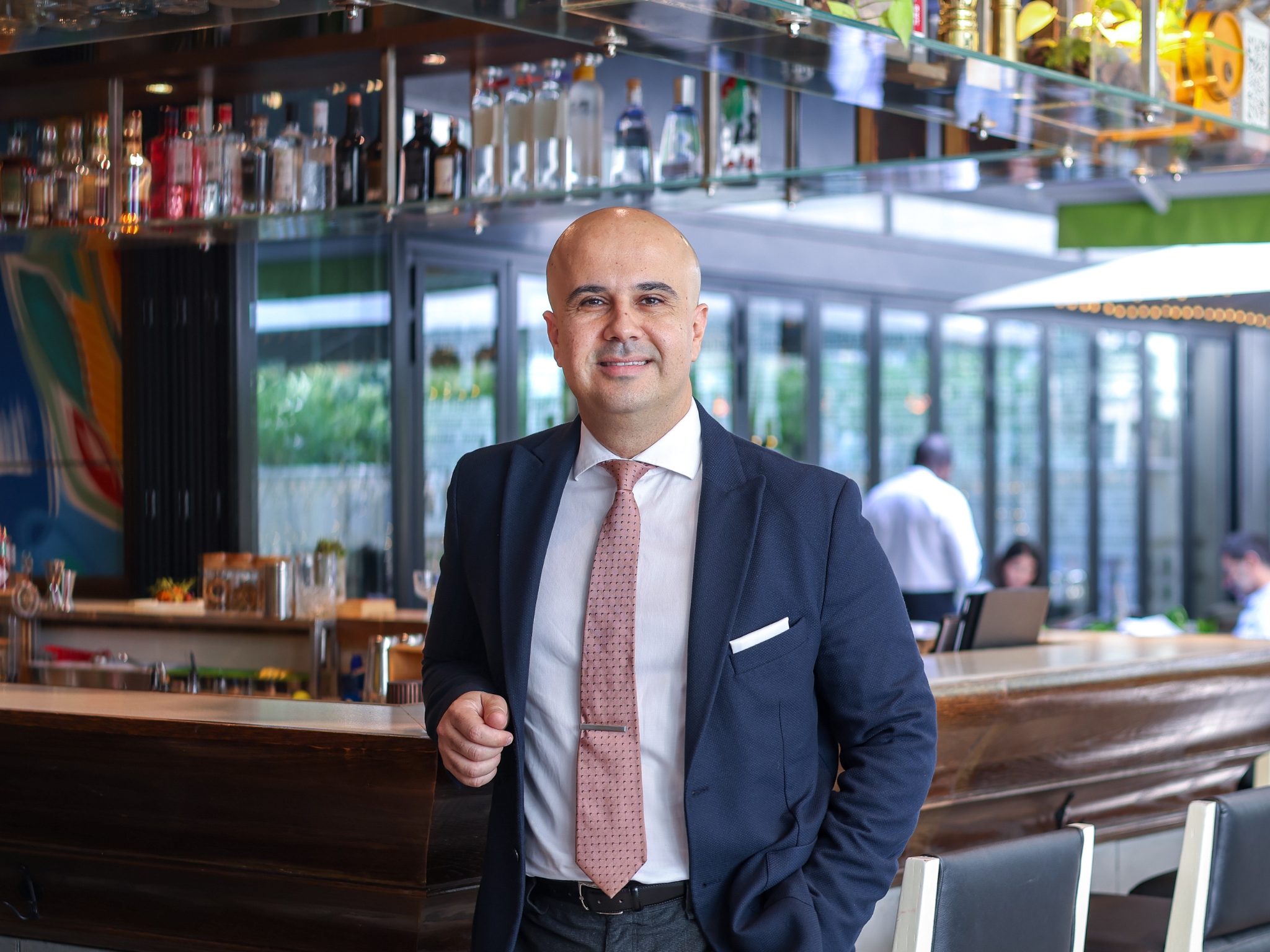Glass Bottles, Tomato Skins & Desert Crops: How Boca Became the Middle East’s Most Sustainable Restaurant
10 Mins Read
In a decade, Omar Shihab and his team at Boca have pioneered how restaurants approach sustainability, championing local produce from a historically barren region.
“In a way, we’re living the future today,” says Omar Shihab.
He is the owner of Boca, a Spanish restaurant in Dubai’s financial district, which was last month named the most sustainable eatery as part of the Middle East and North Africa’s 50 Best Restaurants list.
Shihab opened Boca in 2014 in a country that relies heavily on food imports to meet 90% of its population’s needs. The establishment’s ethos is rooted in local sourcing, waste management, and rigorous emissions reporting.
“We are a restaurant that exists in a very tough part of the world when it comes to resources,” he notes. “We practically live in the desert, where less than 2% of the country’s lands are arable, [where] there is water scarcity… [an] extreme climate.”
He argues that the trajectory of climate change will make other regions in 50 years what the UAE is today. “So if we’re able to showcase what sourcing could look like in such an arid climate like the UAE… [we can] create a blueprint with what we have today for the future,” he says. “This is my perspective on the future of food.”
Greenwashing isn’t on the menu
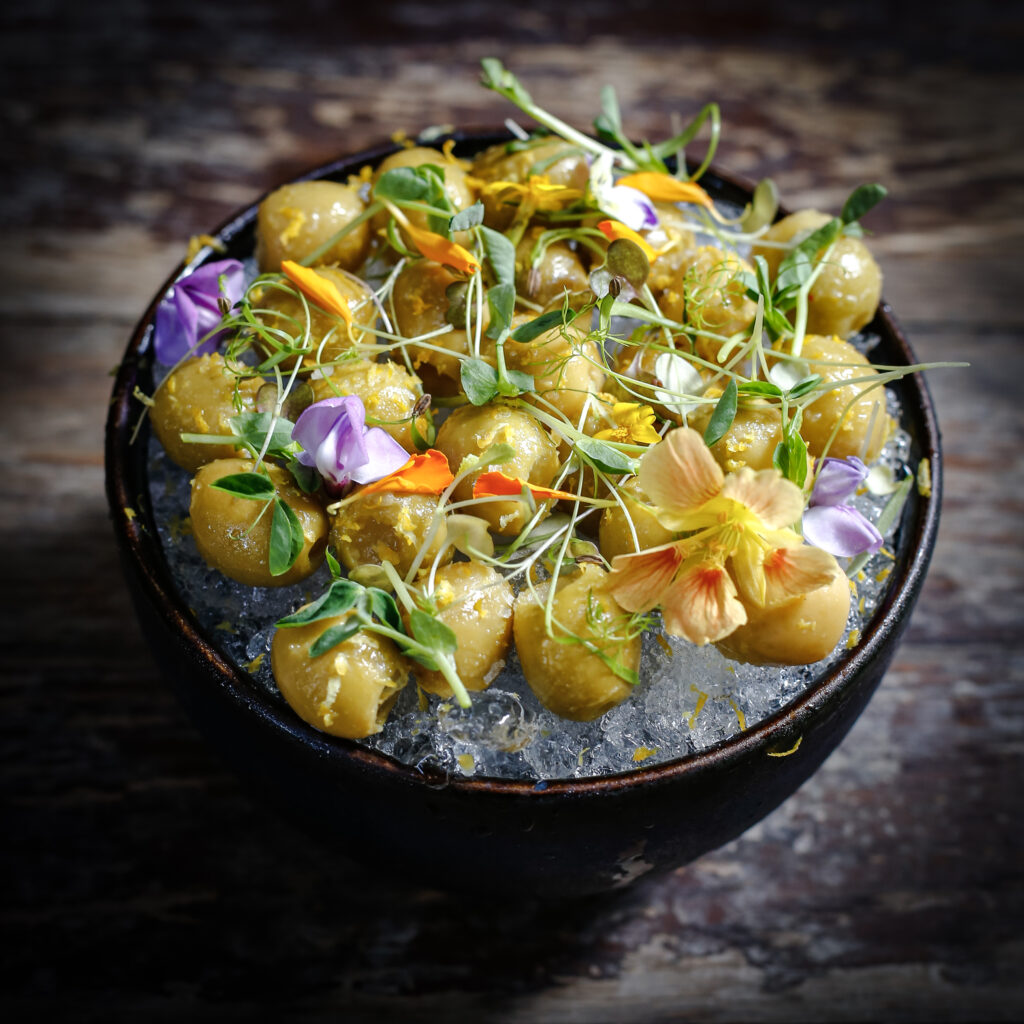
Boca’s 31-page Sustainability Manifesto lays out its five key pillars: local sourcing, waste management, renewable energy, emissions reporting, and community.
These, Shihab says, are key to avoiding greenwashing. “We’ve gone all the way because this is a fairly newer… concept in the region. And I was extremely adamant about providing full transparency [and] data-backed information.”
It was important to publish “everything we’re doing” and share best practices with the industry. “We never say that we are perfect. We are at one part of the journey,” he states. Nevertheless, such information – from energy consumption to the percentage of food wasted – can be a good baseline to build upon.
Boca partnered with a carbon management consultancy to audit its production and operation life cycles and calculate its carbon emissions. “We have put our model to the test because it was extremely important for us to avoid any form of greenwashing or to simply seek advice from the experts within the sustainability field,” says Shihab.
Shihab acknowledges that audits are “extremely expensive and time-consuming”, and only a handful of restaurants can spend the time and money required. That shouldn’t stop businesses from doing something, though. “I think AI can come in really handy here – if through very minimal inputs from the restaurant, you’re able to upload the information and get the rough impact of your restaurant, it’s a great place to start.”
If a restaurant can communicate clearly and in a transparent manner what it is doing to be more responsible – whether it’s sourcing from a specific farm or applying certain techniques in the kitchen – it can go a long way. “That’s really how you can start and avoid greenwashing when it comes to food,” he says.
It’s why Boca’s menu highlights the restaurant’s sustainability initiatives – its used oil goes towards biofuels, its organic waste is composted, and it runs on 100% renewable energy – as well as the carbon footprint of the dining experience (15.01kg per person).
Planet-friendly doesn’t have to cost the Earth

Shihab believes there are many “low-hanging fruits” that foodservice businesses can start with when it comes to sustainability – something as simple as switching off the lights at the end of the day, or installing smart taps.
He recalls how, when the plastic straw debate reached fever-pitch, Boca decided to measure which waste categories were the most critical. “You cannot change what you can’t measure,” he says.
The restaurant appointed one of its staff members as the waste officer, with a small cash incentive each month, and their role was to segregate six types of waste from the entire operation. Instead of appointing auditors and high-end tools, the low-tech approach involved placing a scale at the back-of-house exit where each item of waste was measured by weight before it left the premises. The data was consolidated on a spreadsheet, allowing Boca to make data-guided decisions.
Plastic was near the bottom of the list – the heaviest amount of waste came from glass. This prompted Shihab to overhaul Boca’s glass usage, installing water filters and working with its beverage suppliers to initiate a pickup programme for glass. “It’s just rethinking and organising and prioritising, rather than spending money,” he outlines.
The hard part, he believes, is getting buy-in from the restaurant’s stakeholders, whether it’s the owners or staff. “Convincing and getting people on board to understand and speak the same language – that is where time and effort needs to be implemented.”
At the end of the day, profitability is one of the three Ps in the sustainability world, alongside people and the planet. And the planet-friendly practices Shihab is advocating for can be an enabler for businesses, bringing in major cost savings that can go back into the bottom line – even a 1% reduction in costs is “huge for the restaurant industry”.
“If you’re replacing sourcing your ingredients from conventional farms, for example, with ones that have higher environmental credentials, you’re immediately offering a more premium ingredient that you’re able perhaps – depending on your business – demand slightly higher margin,” says Shihab. “There are considerable savings or contributions to an improved revenue split overall.”
Culinary techniques to reuse waste
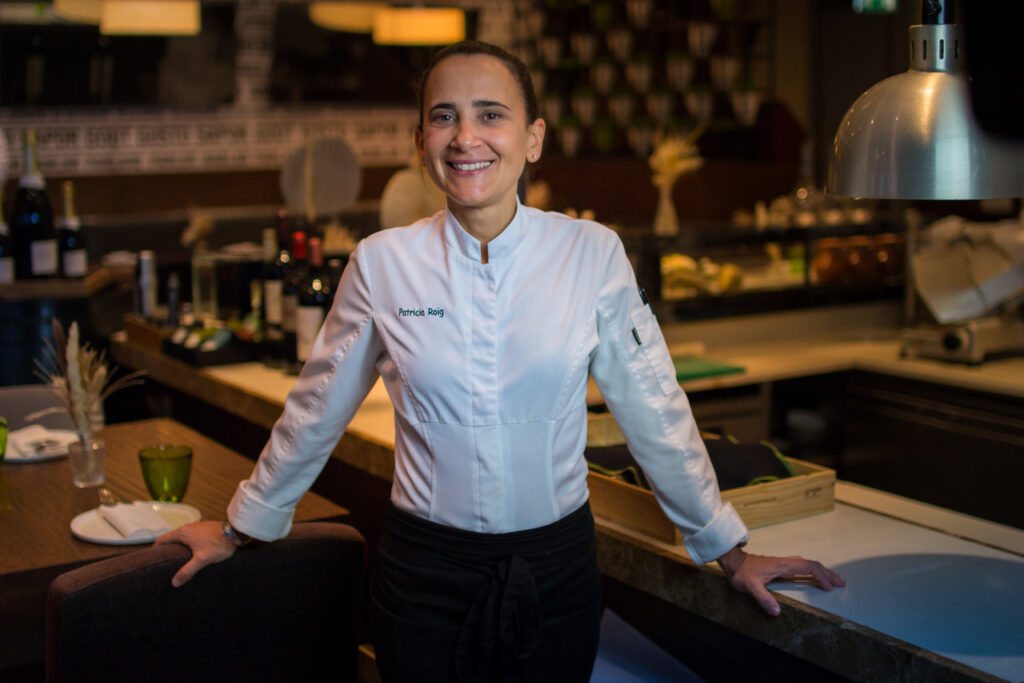
So how does Boca’s sustainability push come to fruition on the menu? The team created a one-page sourcing policy stating that it will always look for ingredients grown locally with high environmental credentials and at the right price.
“We understand that we can’t use 100% of local produce, especially in the challenging environment that we live in here in the UAE,” Shihab points out. In that case, Boca will look regionally or globally – though here too, it will prioritise foods that come with climate certifications.
The other priority for Boca – which has a Michelin Green star – is waste reduction. “Most professional chefs are trained by craft to maximise the utilisation of everything that comes to them,” he says. “But the idea is to go beyond that.”
This means using vegetable peels and ends to make stocks as well as working out how to integrate these byproducts back onto the menu. Some of the culinary techniques that come in handy here are dehydration, fermentation, and pickling.
As a showcase of these practices, Boca has previously menued a dish called Yesterday’s Bread. It comprised coarsely crushed stale bread seasoned with olive oil and balsamic, forming a base for a salad that also included powdered tomato skins from paella-making and ricotta from milk that’s about to go past its best-before date.
“There’s so much umami in that, and it goes into the seasoning of certain dishes,” Shihab says of the tomato skin powder. Boca’s chefs usually focus on the flesh of the tomatoes, so apart from the skins, they separate the tomato water, which is used by the bar to create beverages.
Meat alternatives and climate-resilient crops
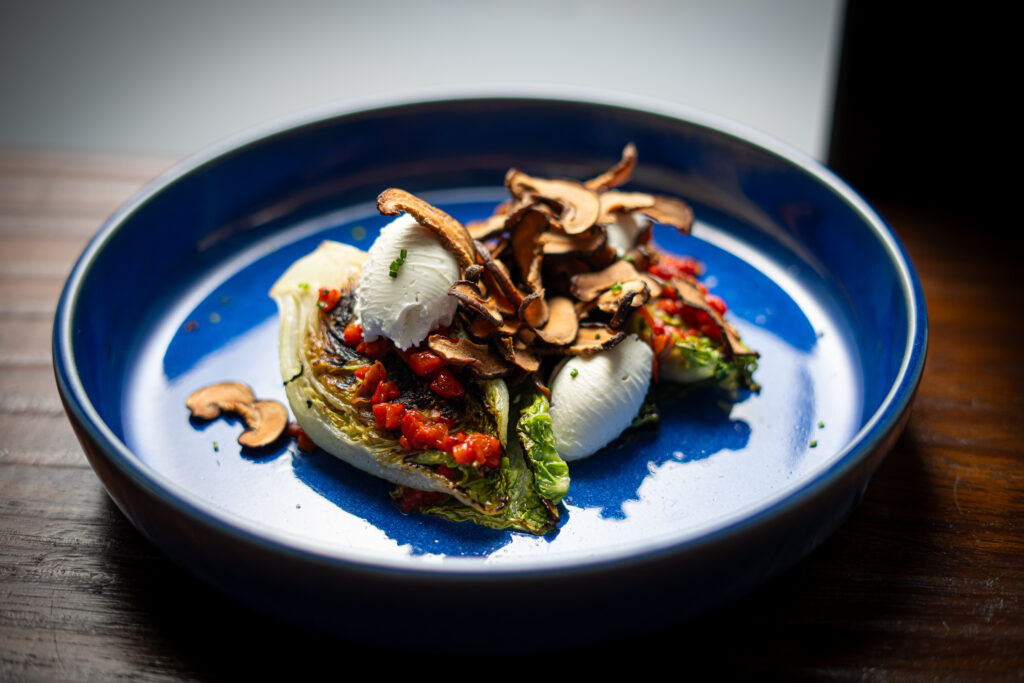
As a restaurant, Boca has never been meat-free and doesn’t intend to be either. “We don’t think we are ready to become 100% vegetarian or vegan. We never said we’re going to remove red meat or fish from our menus completely,” says Shihab.
“Our business model is not ready for that, and there is an aspect of balancing the commercial things. Our guests are not ready for this experience, and the business model of the entire restaurant doesn’t allow us to have a smaller base of customers,” he explains. “What we’re going to do is serve less meat, but better meat.”
In addition to that, Boca is aiming to increase the share of meatless dishes versus those with animal protein. However, meat analogues – still in their infancy in the UAE – have no place on its menu, “because our promise to our guests is that all of our recipes are going to be based on natural ingredients that are found on farms or in the wild”.
“We’re going to rely on recipes that we create ourselves. We’re going to buy raw ingredients and transform them into delicious dishes in our kitchen,” he says, outlining that meat alternatives go through “a lot of processing”, a debate that has turned the alternative protein world on its head.
It’s why you’ll find plants and traditional proteins like tofu on Boca’s innovative menu, its chefs impressing guests with dishes like a carnaroli rice risotto with salicornia and tofu, a desert plant salad with strawberries, coconut skin, and tomato powder, as well as a date sorbet with puffed rice noodles. “If it’s a raw ingredient found in nature, then that’s definitely something we integrate into our menus,” says Shihab.
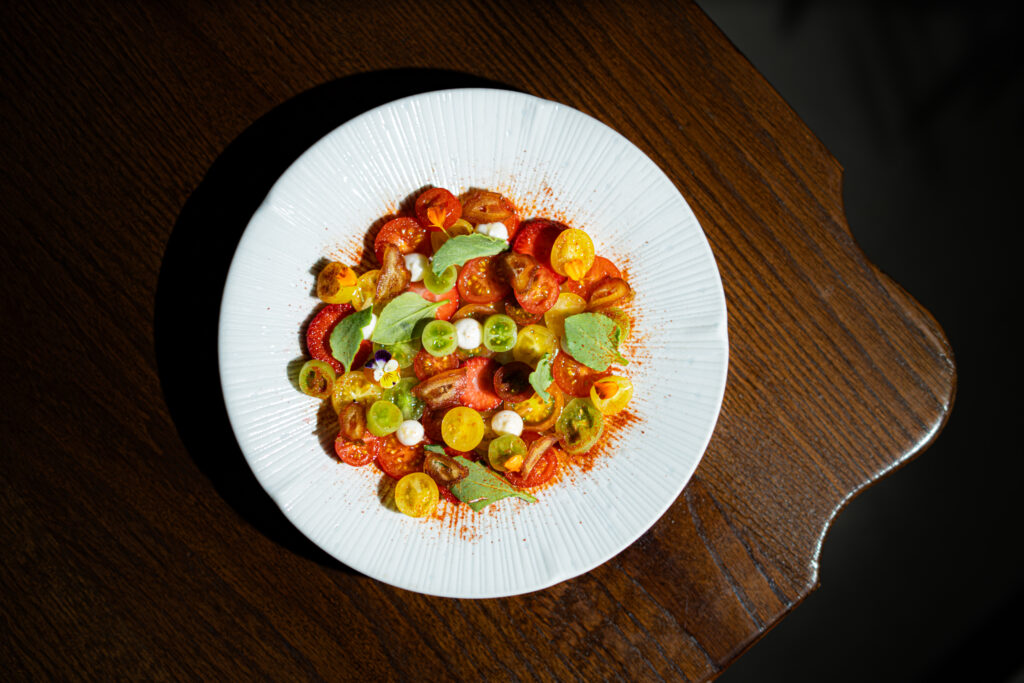
Climate-resilient crops are an equally important part of sourcing for Boca, which works with organic farms, vertical farming companies, as well as foraged ingredients. It’s also seeking advice from scientists at the International Center for Biosaline Agriculture, who are tasked with finding plant species without cross-genetic modifications, which can grow in harsh conditions and feed on highly saline water.
Think crops like quinoa, millets, amaranth and date – “the original climate-resilient crop”. Shihab notes that these scientists have found halophytes native to the UAE, such as salicornia and arthrocaulon, which can potentially be superfoods high in antioxidants and amino acids. “We’re behind an advocacy program to explore the utilisation of these ingredients into the food industry,” he says.
Highlighting its commitment, Boca hosted a Taste of Tomorrow dinner at the Dubai Future Forum in November, in partnership with the University of Arizona’s Prof Jonathon Keats. The event was built on the climate analogue mapping model to highlight how many places in the Gulf have the future climate of regions in southern Spain, with dishes like a paella made from quinoa and seaweed and oyster mushroom kebabs (instead of the pork-based pinchos morunos).
Hospitality and sustainability need to go hand-in-hand
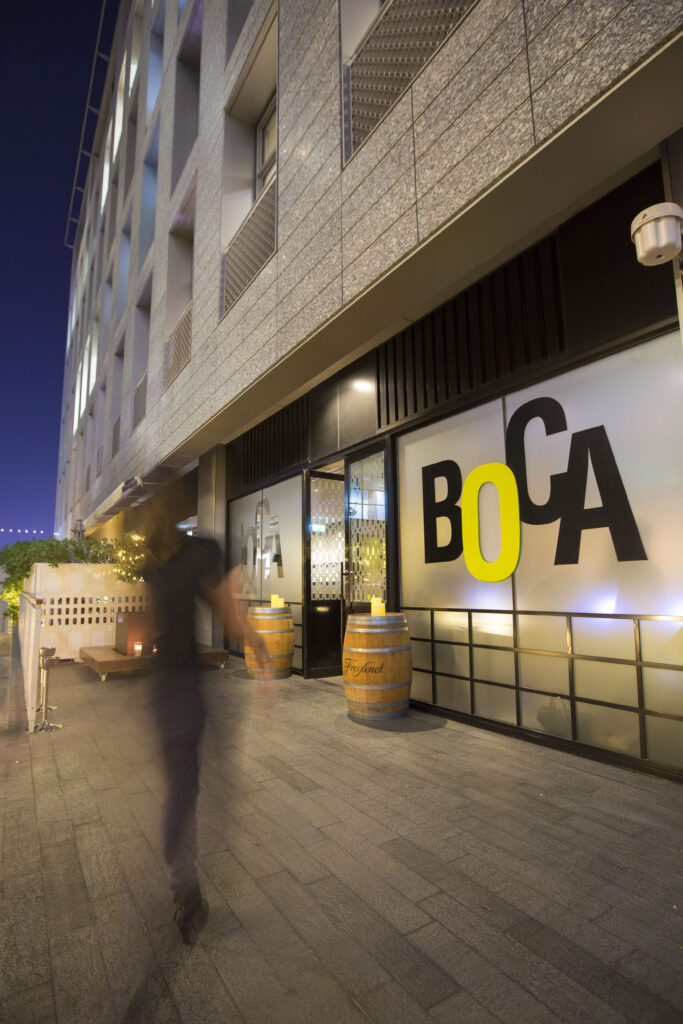
These practices are what earned the top three-star rating from the Sustainable Restaurant Association’s Food Made Good certification, and the award from The 50 Best. “It’s an extremely important recognition,” Shihab feels. “It’s a really, really important platform to showcase all the incredible work that a lot of people are doing.”
Do its diners care about all this, though? “The majority of people are aware of the importance of certain practices within the food industry overall. I think people want to know the origin and the provenance of their food. They want to know that, to a certain degree, there is care and attention being applied, from the growing, the farming practices, down to logistics and finally ending with us in our kitchens. So there is curiosity for sure,” he says.
“There is general awareness about how food waste is an extremely problematic area and a huge issue for our nation, whether it’s culturally or religiously or just generally being aware. After the pandemic, a lot of people have become more aware of how this is such a tough industry, so it’s so important to have certain practices that would take care of the community.”
Whether that’s a guiding factor for people choosing to dine at Boca is yet to be seen, he says. Research shows that sustainability is an important factor for two-thirds of diners in the UAE, while an even higher share (73%) places emphasis on local and seasonal products.
“We are, first and foremost, in the hospitality industry. Our job and our role is to create beautiful spaces, deliver food, and offer great service and hospitality,” says Shihab.
“Now, the challenge is to do that while maintaining the best practices, in terms of sourcing, care for the environment, waste, [and] community management. That is the challenge that we are up against, and it’s something that we have to do sooner or later.”

